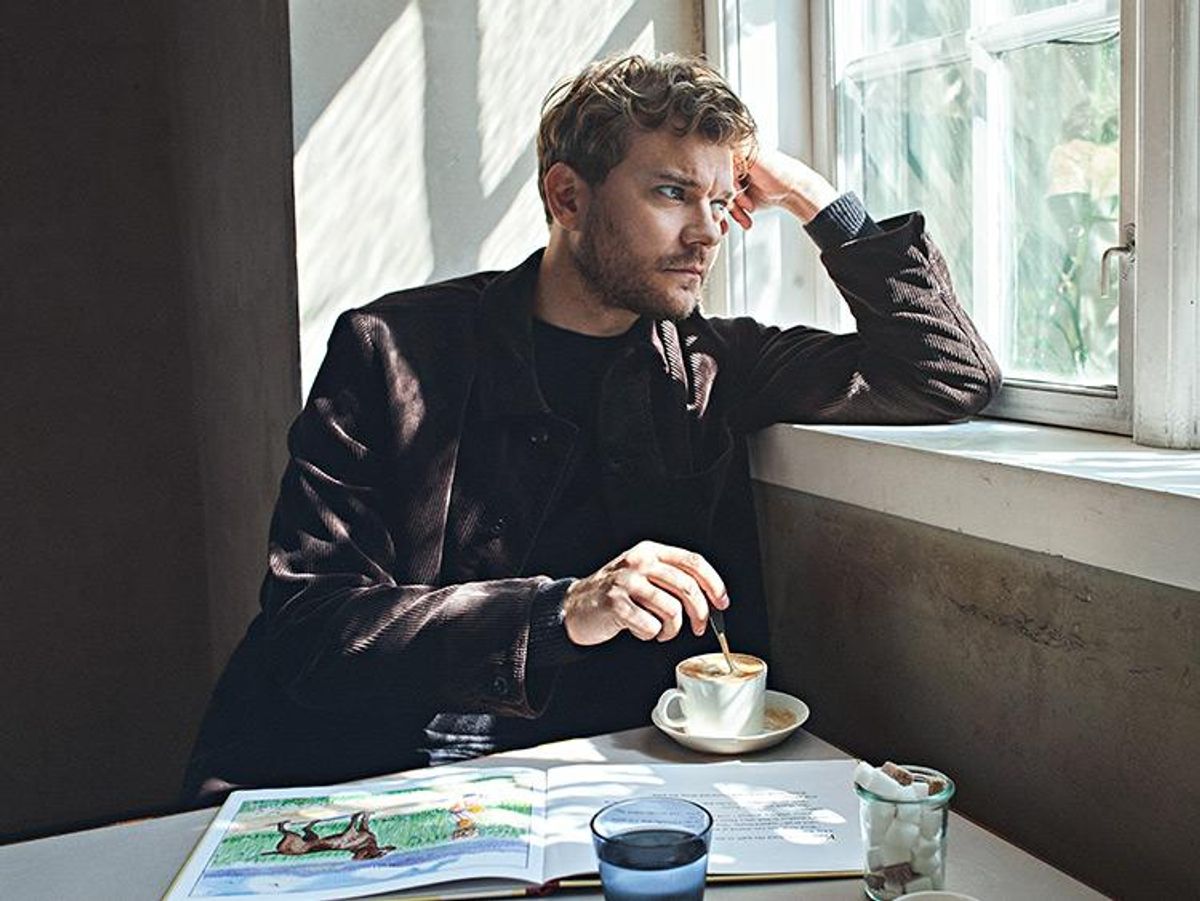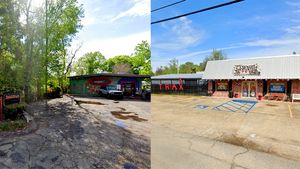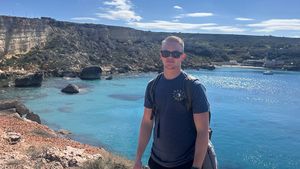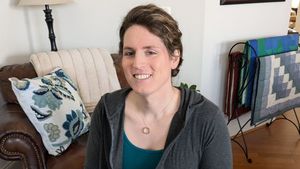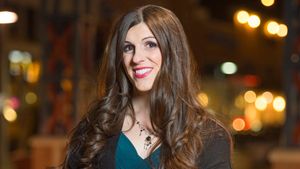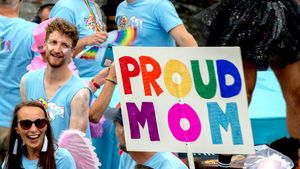When the new season of Game of Thrones premiered this summer, there was something different about Euron Greyjoy, the morally compromised king of the Iron Islands. The new close-cropped style, the mischievous swagger, the dark eyeliner: Euron Greyjoy got hot.
It was actually Pilou Asbaek's idea to give Greyjoy, the sexiest of Game of Thrones's deranged evildoers, a swashbuckling makeover. The 35-year-old Danish actor had built up enough of a rapport with Thrones creators David Benioff and D.B. Weiss to suggest a tweak in his character ahead of season seven. "I wanted to make him a rock star," Asbaek says. Thus began the transformation of your run-of-the-mill dastardly villain into a psychopathic pirate lothario, like Jack Sparrow fresh from the asylum on his way to ask for Cersei's hand in marriage--a play to make the pair Westeros's most diabolical power couple.
Asbaek has plenty of experience when it comes to making depravity engaging, if not charming. After breaking out in an episode of the famously bleak original Danish version of The Killing, the actor made a name for himself playing troubled-but-charismatic spin doctor Kasper Juul in the Danish political thriller and international smash Borgen, eventually gaining global traction with parts in films like Lucy and the 2016 remake of Ben-Hur.

The spectrum of dourness, ruthlessness, and occasional crazy-eyed madness that has come to define Asbaek's alter egos is certainly at odds with the jokey, easygoing family man he is in real life. He lives with what he calls his "double A's"--his wife, playwright Anna Bro, and their 4-year-
old daughter, Agnes--and, as we speak, he's packing up his apartment to prep his family's move to their "dream home" in the Copenhagen neighborhood of Christianshavn.
"If you met me in a bar, we would be laughing like 85% of the time," he says. "The last 15% of the time you would be at the toilet, but still laughing because my jokes would be so funny." So what is it about him that makes him so suited for iniquity? "I don't know. I'm not very serious. I'm a very chill guy. Maybe it's the way I look."
That juxtaposition might also just be par for the course for someone from Denmark, a country that has as close an association with doom and gloom as it does with the idea of hygge (pronounced HU-guh)--basically, a certain kind of coziness and well-being. You wouldn't know it from watching the moody, rain-soaked psychodramas that have come to define the Nordic noir genre of television--shows like Borgen, The Killing, and The Bridge--but the people who make these series, Asbaek included, are officially the jolliest people on earth.
The United Nations' World Happiness Report, which ranks 156 countries on metrics ranging from GDP and life expectancy to freedom and corruption, consistently places Denmark at or near the top of the list, including on this past year's tally. "I don't know if we're actually the happiest people, or if we're very good at lying when we're doing these polls," Asbaek jokes. "Because why should we be happy? It's raining 40% of the time. It's dark 50% of the year." Researchers posit, and Asbaek agrees, that much of it owes to an insistence on social welfare, whether that comes from the government--Danes pay more taxes than residents of almost any other country, topping off at almost 60%--or from the people's cultural inclination toward hygge.

It's a concept so simple that, to foreigners, it just becomes perplexing. "Hygge's cozy. Hygge's having a good time," Asbaek says. "You do something nice. That's hygge. The funny thing is, it always comes after you've done it.
You say, 'It was hygge. It was cozy. It was nice.'"
A fascination with the concept has made its way overseas, with attempts at intellectualizing it making the pages of The New Yorker and The New York Times, and dozens of books translating the premise into a how-to guide for a
happy life.
Asbaek cautions not to overthink the concept. (There's a reason no direct English translation exists). It's a way of living that can't be manufactured. Have a cold? A prescription of tea and hygge could do the trick. Did you indulge in a warm croissant on a rainy day, or down a few pints after a chaotic week, and feel better after? That was hygge. So was that candlelit dinner by the fire you just had, the perfect confluence of atmosphere, pleasure, and presence in the moment when you, whether you knew it or not, needed it. Some might argue that the concept is a privilege afforded only to a culture with extreme social welfare, unburdened by the anxieties so many cultures face in regard to health care, education, and safety. Others would say hygge is simply a human reflex, and one that shouldn't necessarily be reserved for Scandinavians.

"Honestly, I feel I live in the best country in the world," Asbaek says. "I love my country. I love Denmark. That's the reason I haven't moved to America." The son of gallery owners with two brothers also in the art business--"I'm the black sheep of the family"--Asbaek was born in Copenhagen and has stayed there his entire life, graduating from Denmark's National School of Theatre in 2008. But, especially after seeing his profile explode because of Game of Thrones, he's become keenly aware of our preoccupation with his country's dichotomies, particularly when it comes to its pop-culture output. Borgen, after all, was one of the most popular shows in all of Europe and a cult favorite in the United States when it aired, and The Killing and The Bridge scored high-profile American adaptations because of, not despite, their chilling nature.
"Why are we such big fans of hygge and the happiest people in the world and yet create things this dark and gritty?" Asbaek ponders. "It's because six months of the year it's a dark country. As in physically dark, because of the sun. That makes you a little more tough, you know?"
He continues, "We're a little bit looser. So what if it's raining? You gotta move on, man. It's the whole vibe of this country that we're a little more...chilled." He starts laughing again and then interrupts himself: "But not California chilled. That's stoner chill. We're just a little bit more relaxed sometimes."
Photography: Nikolaj Moller
Styling: Sebastian Machado
Groomer: Stine Rasmussen
Photographed: Designmuseum Danmark
Production: Blink Production
Photo Assistant: Christian Brylle
Stylist's Assistant: Julia Thompson
